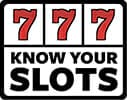Some links in this article include affiliate links, which provide a commission if a purchase is made. Affiliate links have no impact on our recommendations.
One of the areas that some superstitious players wound up is whether casinos are tinkering with payback and finding ways to take peoples’ money faster. The reality is games have an edge built in and casinos don’t need to do anything crazy to win your money over time.
That said, some casinos want it faster than others. And in the case of markets that require reporting, you can sometimes get some data that can help you determine what makes more sense as a player. Today, we’ll take a look at how to find that data, and how to make sense of it.
Who is Required to Report
While there are quite a few casinos in the country, not all report payback, and it largely falls into two buckets.
- Most Native American casinos don’t report. One major exception are the two casinos in Connecticut, which forged agreements early on for casino gambling and agreed to report payback as part of their deal with the state. They happen to be among the larger casinos in the U.S., so their size and popularity make reporting a helpful thing.
- Most racinos, commercial gaming and state lottery-connected facilities report payback.
If you play at a casino that isn’t required to report payback, you will have less of an understanding of how their games are set to payback overall; even if you have access to overall payback, you won’t know how an individual machine is configured, but at the least you’ll have a general idea of how one casino pays vs. another.
Reporting focuses on electronic gaming, such as slots, video poker, and so on, and don’t generally focus on table games, which have their own ways to account for hold and payback.
Finding Payback Information
Each state releases data periodically with the payback information they’ve received and report to the public. Websites like those managed by the American Casino Guide take the time to compile such reporting into a nationwide accounting of known payback information. The University of Nevada, Las Vegas also has a large library of reporting that covers casinos across the United States.
Some markets report payback as an overall number by casino; some states, like Nevada, report payback for all casinos in a given area, by denomination, which obfuscates how any one casino may pay back. In the best case scenarios, like in Connecticut, you get both; payback by casino and by denomination.
When you have markets like Las Vegas where payback is shared with casinos lumped together, you can sometimes look to other markets where a casino company has casinos to get a general idea of their payback levels, as such is many times set corporate wide with little deviation from one casino to another.
What Payback Data Tells You
Payback information will help you understand where you’ll get the most mileage for your money overall. When you are in an area where a lot of casinos report, it can also help you identify how things are changing over time.
For instance, going back to Connecticut as an example, the hold on slots is actually down in recent years from earlier in the decade. It is likely attributable to the growth of competition in Rhode Island and Massachusetts in recent years, and their aim to be competitive. (You can also gleam other interesting facts such as the casinos have pared their slot count down by nearly a third each in the last handful of years, as they both aim to diversify the revenue made at their properties into other directions such as restaurants and experiences.)
Payback within a market can differ too, Evaluating Las Vegas, for instance, payback at strip casinos lags downtown, which lags the Boulder Strip and North Las Vegas. This makes sense; the strip and downtown have a ton of traffic and as such they don’t have to promise high paybacks to get people to play. Meanwhile, casinos off the beaten path will use their higher payback vs. those popular tourist areas as a way to woo players to come check them out.
If you’re trying to be an informed gambler, playing at places with lower reported overall holds (holds being what percentage the casino is making off your betting) means your money should last longer than places where the hold is higher. All other things being equal, where you choose to spend your money should be informed in part on where you’ll get the most bang for your buck. But when many times the difference in hold is a fraction of a percent, your short-term luck will likely have a bit more to do with things than the casino’s hold policy. In the long term, however, the most bets you expose to a higher house advantage, the more likely your bankroll will deplete.
This is the same reason why those who wish to get the most mileage playing Blackjack should avoid side bets, and why those playing Craps should stick to pass/don’t pass and placing the 6/8 over more exotic bets such as a dollar yo, for instance. But some people like betting on certain games, or playing at certain locations, and are focused on the entertainment, and that’s certainly fine too.
Summary
If you have access to payback reporting, it’s worth a look and some thought over whether you’re picking the right places to gamble. It should be part of the calculation, along with what comps you’re getting for your play and so forth. At minimum, you know if a place you’re playing at is giving you the best value for your dollars over time or if it’s more inclined to take your money quicker.








